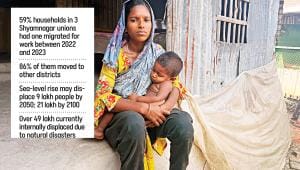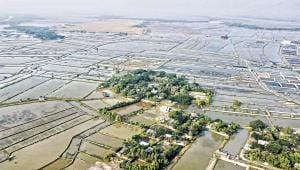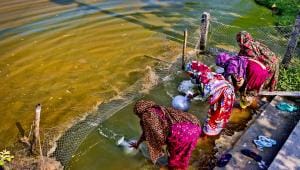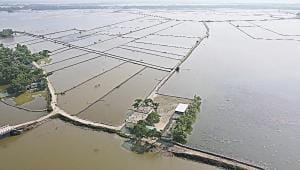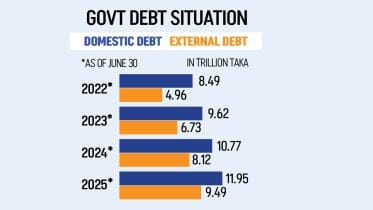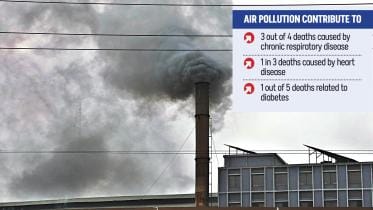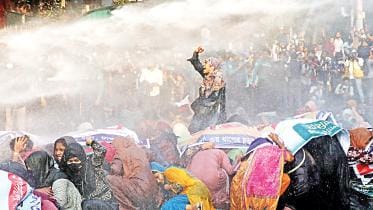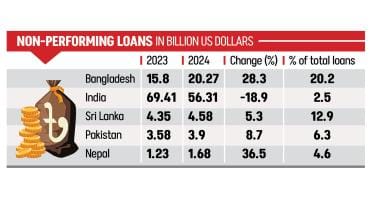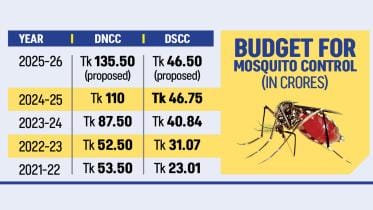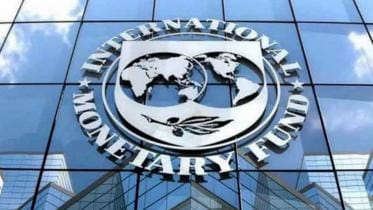Only 44% make it to class 10 after primary
Although 84% of children in Bangladesh complete primary school, less than half go on to finish secondary education, a govt survey reveals
18 November 2025, 18:14 PM
Govt debt tops Tk 21 trillion
For the first time, Bangladesh’s outstanding government debt has surged past the Tk 21 trillion mark, pushed upward by chronically weak revenue collection and years of ambitious development spending.
14 November 2025, 18:37 PM
Bangladesh Bank seeks legal overhaul for full autonomy
Governor Ahsan H Mansur outlined the draft amendments to the Bangladesh Bank Order 1972
31 October 2025, 18:13 PM
Over 2.7 lakh deaths linked to air pollution in 2023
Over 271,000 people in Bangladesh died from air pollution-related causes in 2023, according to a new global report.
22 October 2025, 00:00 AM
To the girl raising her father
It still feels like yesterday.
It was a March evening in 2017. I stood outside the labour room -- anxious, restless, and counting the seconds.
10 October 2025, 18:00 PM
When governance fails, people pay the price
Month after month, similar figures emerge, followed by assurances that things will change. Yet, the headlines barely differ.
8 October 2025, 05:00 AM
Architects of tomorrow overlooked today
They carry the nation’s most vital responsibility: shaping young minds and laying the foundation for future generations.
4 October 2025, 18:00 PM
Eastern coast sinking faster as sea level rises
Bangladesh’s eastern coast, a key zone for development activities, is sinking faster than the central and western coasts amid rising sea levels, posing threats to infrastructure, vast swathes of farmland and the livelihoods of millions of people, warns a new study.
3 October 2025, 18:25 PM
Dengue deaths: Families left behind to pick up the pieces
As of yesterday, 188 people had died and 44,693, had been hospitalised.
26 September 2025, 18:29 PM
New condition for $5.5B loan: IMF limits Bangladesh’s foreign loan intake
The global lender introduced a new condition for the next instalment of its $5.5 billion loan package
26 September 2025, 18:24 PM
Total literacy elusive after Tk 4,000cr spent
Nearly one in five Bangladeshis aged seven and above remains illiterate, despite Tk 4,000 crore being spent on literacy programmes over the past 34 years.
8 September 2025, 18:09 PM
Bangladesh tops Asia’s bad loan charts
Bangladesh now has the highest non-performing loan (NPL) ratio in Asia, with defaults surging to 20.2 percent of total loans in 2024, according to a new Asian Development Bank report.
4 September 2025, 18:19 PM
Primary schools: Dropouts up after 14 years of decline
In a setback for the country’s primary education system, the school dropout rate saw a sudden rise last year after a steady decline over 14 years, according to a government report.
30 August 2025, 18:19 PM
Tk 707cr spent in 9yrs, dengue still ravages Dhaka
This year, DNCC proposed Tk 135 crore budget and DSCC Tk 46.50 crore for mosquito-control activities.
18 August 2025, 18:05 PM
'Now the teachers adore me'
A mother’s grief exposes a broken education system
16 August 2025, 06:18 AM
From chirps to silence
The acrid stench of charred wood and melted plastic still clung to the air as onlookers gathered around the Milestone School and College building in Uttara’s Diabari.
22 July 2025, 18:17 PM
Air Force jet crashes into Milestone College
Toll may rise; around 170 injured, many critically; ISPR says ‘mechanical failure’ caused BAF training plane to plunge into Uttara school
21 July 2025, 21:42 PM
Bangladesh’s banking sector reforms: ADB to provide $1b in budget support
The Asian Development Bank plans to provide $1 billion in budget support to advance Bangladesh’s banking sector reforms, contingent on 25 conditions including the creation of a financial stability fund for banks facing capital shortfalls.
4 July 2025, 18:14 PM
IMF conditions: Govt pledges to track graft in tax admin
The government has pledged a series of sweeping reforms to meet International Monetary Fund conditions for the next instalment of its $5.5 billion loan, including a public survey to measure corruption in tax administration and a phased reduction of subsidies on electricity, fertiliser, remittances and exports.
27 June 2025, 18:07 PM
$520b economy by next fiscal year
Bangladesh’s gross domestic product is projected to surpass the $500 billion mark for the first time in the upcoming fiscal year contingent upon exchange rate stability.
29 May 2025, 18:28 PM






